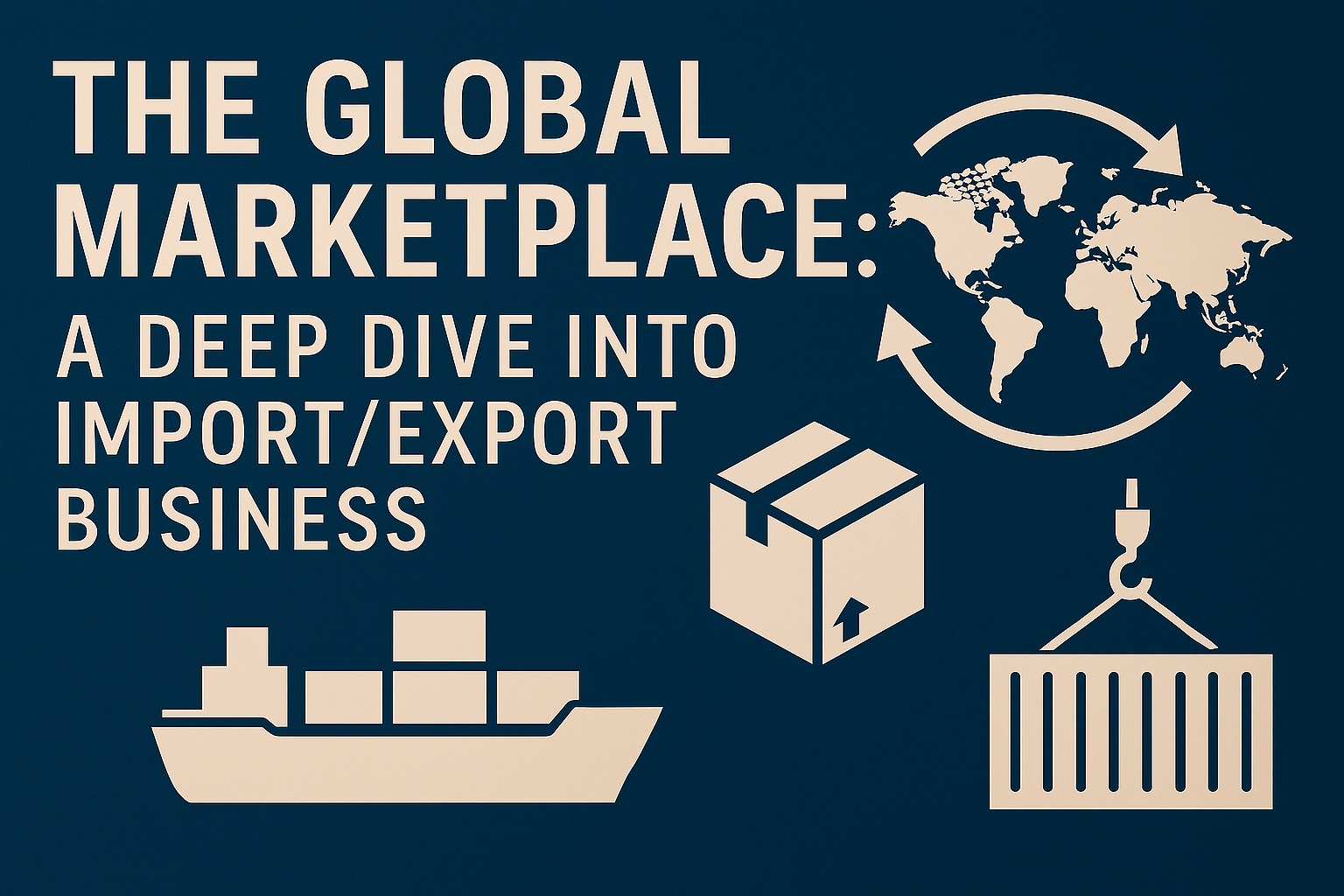The import/export industry has long been the backbone of global trade, connecting businesses and consumers across borders. In an era defined by globalization and digital transformation, this industry offers unparalleled opportunities for growth—but also presents unique challenges. Whether you’re an entrepreneur looking to break into international trade or a seasoned player seeking to optimize your operations, understanding the nuances of import/export is essential.
What is the Import/Export Business?
At its core, the import/export business involves buying goods from one country and selling them in another. Importing allows businesses to access products unavailable domestically, while exporting helps companies expand their market reach beyond national borders. The success of this industry depends on logistics, compliance, and a keen understanding of market demands.
Why is the Import/Export Industry Important?
- Global Connectivity: Imports and exports are essential for connecting economies, fostering cultural exchange, and creating opportunities for growth.
- Economic Growth: The industry drives economic development by supporting industries such as manufacturing, transportation, and logistics.
- Diverse Consumer Options: Imports enable consumers to access products from around the world, while exports allow businesses to tap into new revenue streams.
Steps to Starting an Import/Export Business
- Market Research: Understanding market trends, consumer preferences, and demand is critical. Research both the target country’s market and your local market for opportunities.
- Choose Your Niche: Decide on the type of products you want to trade. Popular categories include electronics, textiles, agricultural products, and industrial equipment.
- Legal and Regulatory Compliance: Familiarize yourself with customs regulations, tariffs, and trade agreements. Ensure your business adheres to both domestic and international laws.
- Find Reliable Partners: Build relationships with trustworthy suppliers and distributors. Vetting partners is crucial to ensuring smooth operations.
- Set Up Logistics: Plan your supply chain, including shipping, warehousing, and delivery. Partner with reputable freight forwarders to handle international shipping.
- Secure Financing: Import/export businesses often require upfront capital for purchasing goods and managing logistics. Explore trade financing options like letters of credit.
Challenges in the Import/Export Business
- Complex Regulations: Navigating the myriad of international trade laws can be daunting. Non-compliance can result in hefty fines or shipment delays.
- Cultural Differences: Language barriers, negotiation styles, and business etiquette vary by country, requiring cultural sensitivity and adaptability.
- Supply Chain Disruptions: Global events, such as the COVID-19 pandemic or geopolitical tensions, can severely impact supply chains and shipping schedules.
- Currency Fluctuations: Exchange rate volatility can affect pricing and profitability. Using hedging strategies can mitigate risks.
Success Stories in Import/Export
- Small Business Goes Global A family-owned coffee roastery in Brazil leveraged export opportunities to expand its brand internationally. By focusing on high-quality beans and sustainable practices, the company established partnerships with cafes across Europe and Asia.
- Tech Startup Thrives on Imports A U.S.-based e-commerce startup specializing in gadgets sourced innovative tech products from China. By identifying untapped niches and offering exceptional customer service, the business scaled rapidly.
Trends Shaping the Industry
- E-Commerce Integration: Online platforms like Alibaba and Amazon are revolutionizing how businesses connect with international buyers and suppliers.
- Sustainability: Eco-conscious consumers are driving demand for sustainable products, creating new opportunities for businesses that prioritize environmental responsibility.
- Digital Tools: From AI-powered market analysis to blockchain-enabled supply chains, technology is transforming the import/export landscape.
- Regional Trade Agreements: Agreements like the USMCA and RCEP are opening new trade opportunities while simplifying compliance.
The import/export industry is as rewarding as it is complex. Success requires strategic planning, adaptability, and an in-depth understanding of global markets. Whether you’re importing exotic goods to cater to domestic demand or exporting your unique products to the world, the opportunities are boundless in the global marketplace. Now is the time to embrace the challenges and rewards of this dynamic industry—your future customers are waiting across the border.

